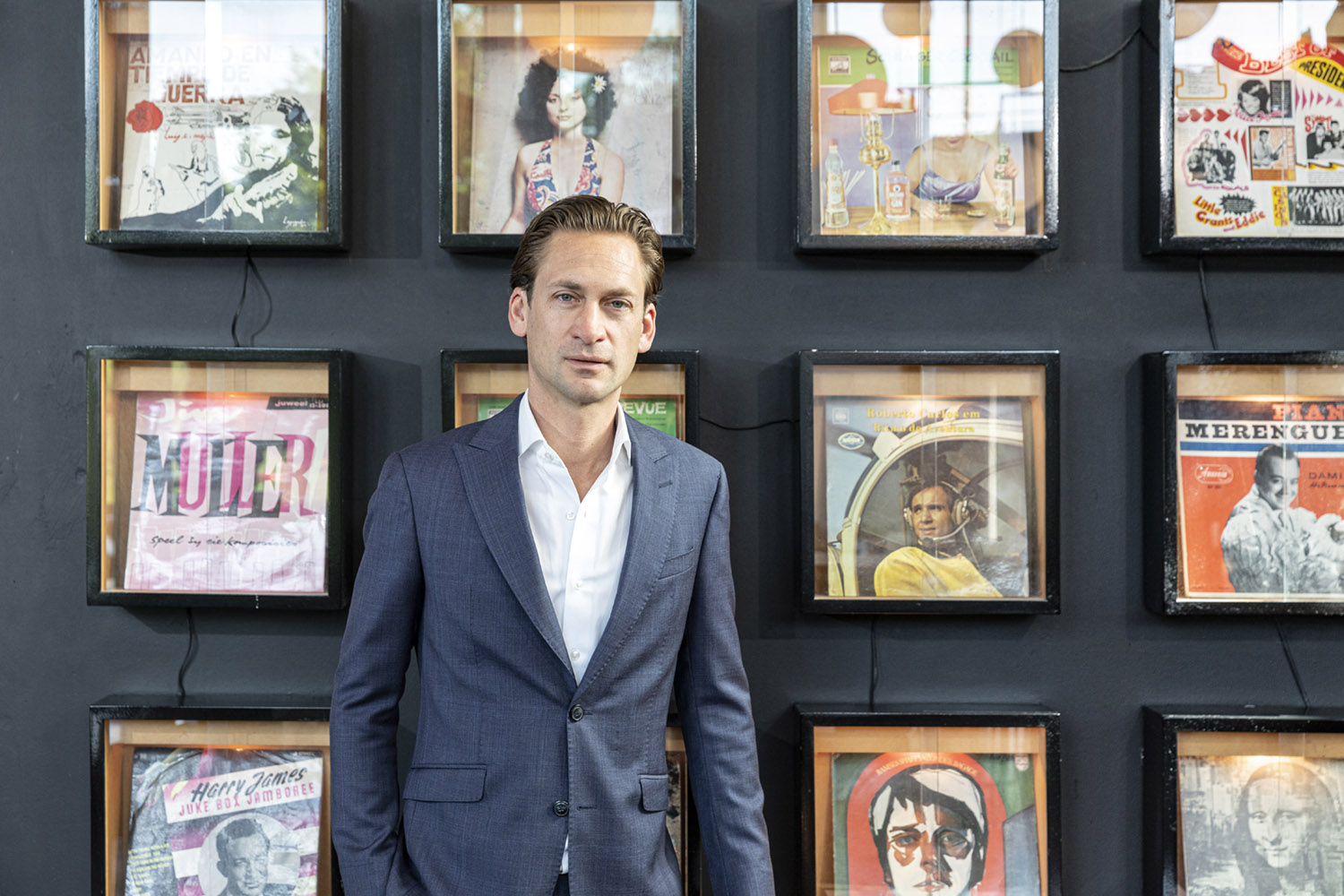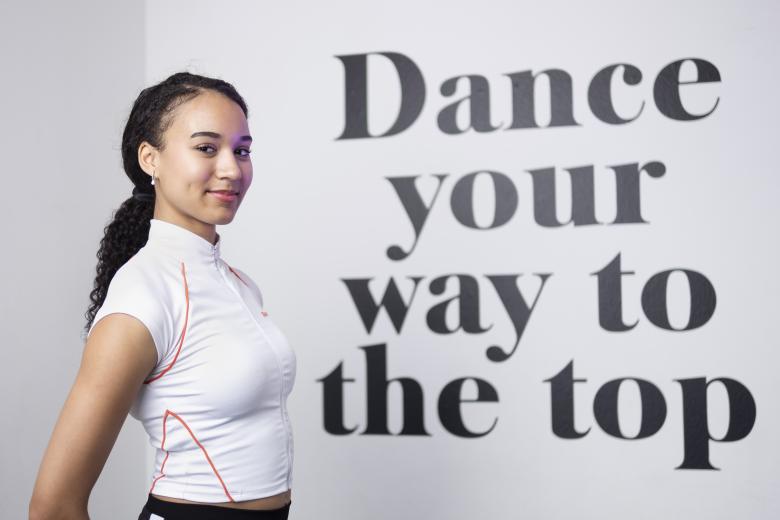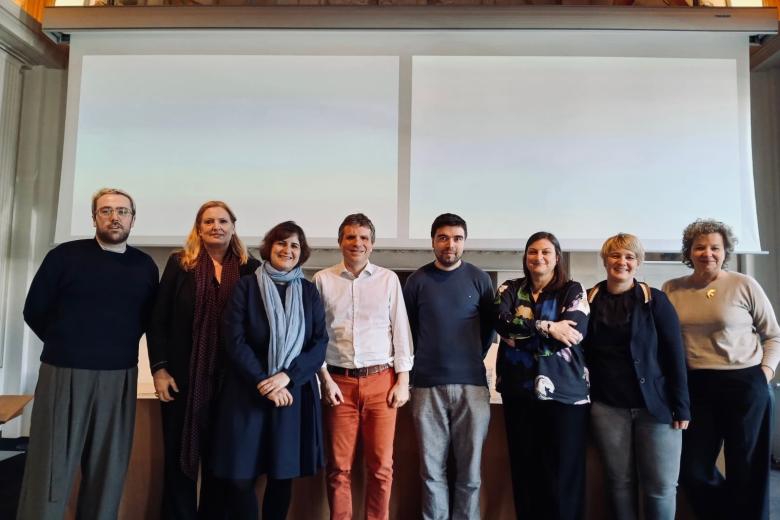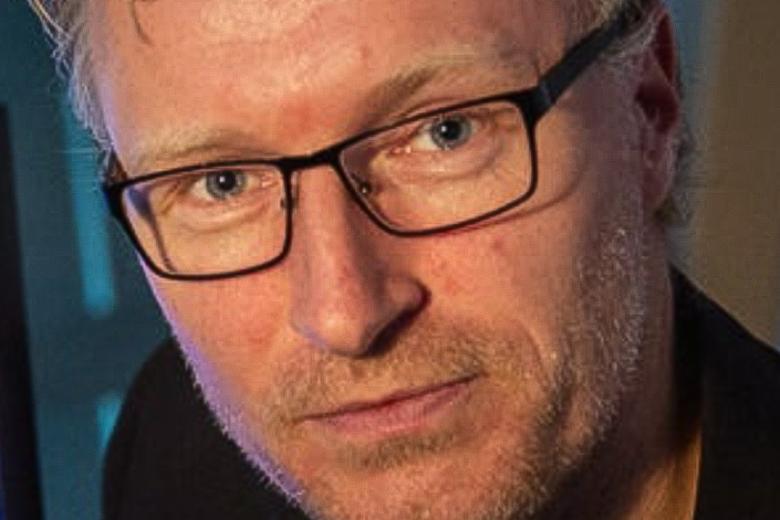Studio Europa: with élan and Fingerspitzengefühl
What does ‘Europe’ mean to you? How does it make you feel? Maastricht University’s Studio Europa is a place of dialogue for citizens, scholars and policymakers, where you can hear about and be heard on all things European. Academic director Mathieu Segers talks about the importance of gaining a better understanding of ourselves in Europe.
Seven UM scientists shed light on the European state of affairs as part of our series Maastricht, reflecting on Europe.
If you ask Segers, the Maastricht Treaty, negotiated in the buildings of the provincial government, comes with special responsibilities. “It’s still here. We’re literally the guardians of this important bit of European heritage”, says the proud Maastricht native and renowned scholar of Europe. “This is the ideal place for a dialogue on Europe and the future of European integration.”
Under the umbrella Maastricht, Working on Europe, the university, city and province are investing in becoming an academic and social hub for Europe. “Studio Europa is the manifestation of this collaboration. We want to bring together citizens’ opinions to facilitate better policymaking. We also want to communicate the complexity of the debates on Europe to the broader public.”
Europe goes to the polls
The broader public seems ready. Hundreds of visitors attended the live screening of the Maastricht Debate at the Vrijthof, just one of many initiatives by Studio Europa in the run-up to the European parliamentary elections. Together with representatives of citizens’ initiatives, startups and academics, Studio Europa hosted a plethora of events, from lectures to debates and workshops.
“The elections were a mixed bag”, Segers says. “Despite the rise of anti-EU forces, the centre has held. But it’s changed, too. With Liberals and Greens surging, there are now four main parties. In many ways that’s good news: it puts content – i.e. action on the real issues – into sharper focus. As such, these elections reflect the challenging and worrying times we’re living in.”
Rather than just divide portfolios among themselves, the centre-right or -left will have to have substantive discussions before entering into any kind of coalition. “The obvious conclusion across the board is that the status quo is no longer an option. The question now is: who will lead the change?”
More than anything, Segers appreciates how passionately the elections – hitherto often a rather dull affair – were contested. “We’ve seen heated debate in the national arenas due to the European dimension of recent crises, from Crimea to terror attacks and migration. European and national politics are interacting a lot more.”
This is exactly the type of engagement Studio Europa wants to promote. “It’s not our mission to be enthusiastic about European integration, but to better understand ourselves. A lot has been taken for granted, rather than studied. We’ve seen some quite uncritical herd behaviour around European integration.”
Brexistential crisis
Brexit has brought home how much scepticism there is around the notion of Europe – and how we still tend to hark back to the certainties of identity rather than confronting complexity. Despite the collateral economic damage to the British people, Segers is surprisingly positive about Brexit as a political process: it has launched a crucial debate about possible alternatives, he says.
He points to the lack of British influence on European finance as the root cause of the referendum. “London is the centre of finance and their economy depends on that sector. Everybody in Brussels had sympathy for that and in 2016 they offered Britain a great deal.” But by then, David Cameron, too eager to humour Brexiters, had lost credibility as an advocate of his deal, and the campaign had been hijacked by migration and identity politics.
Problems of perception
“The great tragedy is that the EU is doing a great job at facilitating regional identity, but nobody knows about it.” National and regional politicians have not been transparent about where those funds come from; instead, mute technocrats in Brussels served as scapegoats for a smorgasbord of unrelated issues. The European dimension, so important in daily life, has not been taken up at the regional level.
“The EU found effective, scalable solutions to regional problems by grouping people into units and comparing similar regions.” But viewing individuals as units risks depriving them of their feelings and histories. “That’s an endemic problem; people feel disconnected from the policies, not because they’re inefficient or opaque, but because they feel irrelevant to daily life.” Through dialogue and education, Studio Europa hopes to bring citizens’ experiences into policymaking. (text continues below photo)

Holiday from history
The stylised political debate revolving around false dichotomies partially comes down to a lack of self-knowledge. “First, you chose your camp, then you join the debate – but obviously, that can’t work. Nation state versus federation, pro-EU or Eurosceptic … They’re all oversimplifications, lazy thinking. In reality, we’re building something in between.”
What causes this intellectual decadence? Segers believes Europeans became fed up with politics after the “feasts of democracy” of the Weimar Republic led the continent into ruin. Anglo-Saxon influence in the post-war years swung the pendulum towards the primacy of policy over politics, while the Cold War, which he calls “a vacation from politics and history”, made normative discussions surplus to requirement.
Byzantine behemoth
After a rude awakening from the slumber of certainty that was the 90s, Europe should embrace its own ambiguities. When Segers was advising the Dutch government at the height of the European debt crisis, a Chinese government official expressed admiration for the EU’s refusal to take decisions despite extreme pressure. “Everyone was sniggering, but he was serious. They thought deferring action in challenging circumstances gave you the best chance of avoiding errors.”
With Europe destined to remain a work in progress, Segers and his team have plenty to do to facilitate this slow, silly, beautiful, infuriating, exhilarating, tiresome and passionate discussion in 24 official languages – and in Studio Europa, Maastricht.
Also read
-
Jolijn: “During the day I study medicine. In the evening, I am on stage singing and dancing”
During the opening of the academic year, Jolijn van Vugt was singing and dancing on stage at Theater aan het Vrijthof. As a performer, to be precise. The 21-year-old medical student manages to combine her studies with singing and dancing at an advanced level. She dances at the Oxygen dance school in...

-
Globalisation & Law Network seminar with Damian Chalmers
On 4 November 2025, the Globalisation & Law Network had the honour of welcoming Prof. Damian Chalmers to discuss his paper “The EU’s Governing by Legal Shadows”.

-
Moles in your living room: using augmented reality in neurorehabilitation
How can you use digital moles to help patients with Parkinson's? Melvyn Roerdink explains.
